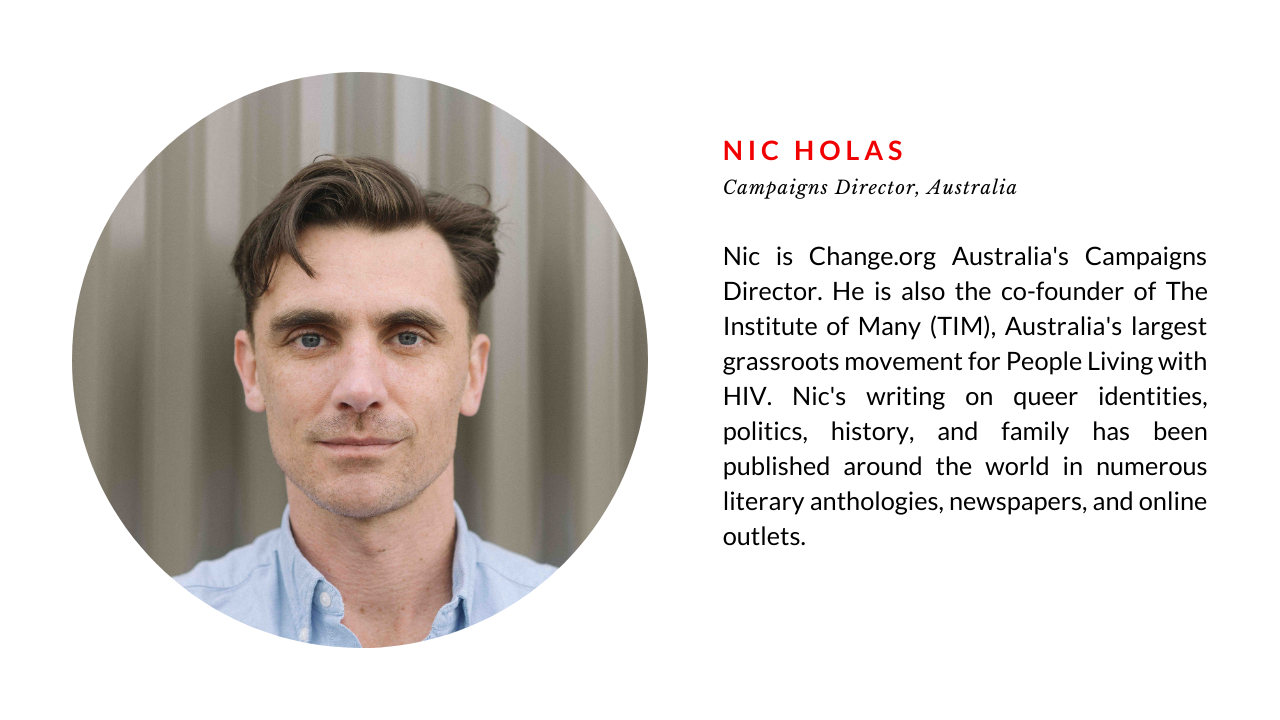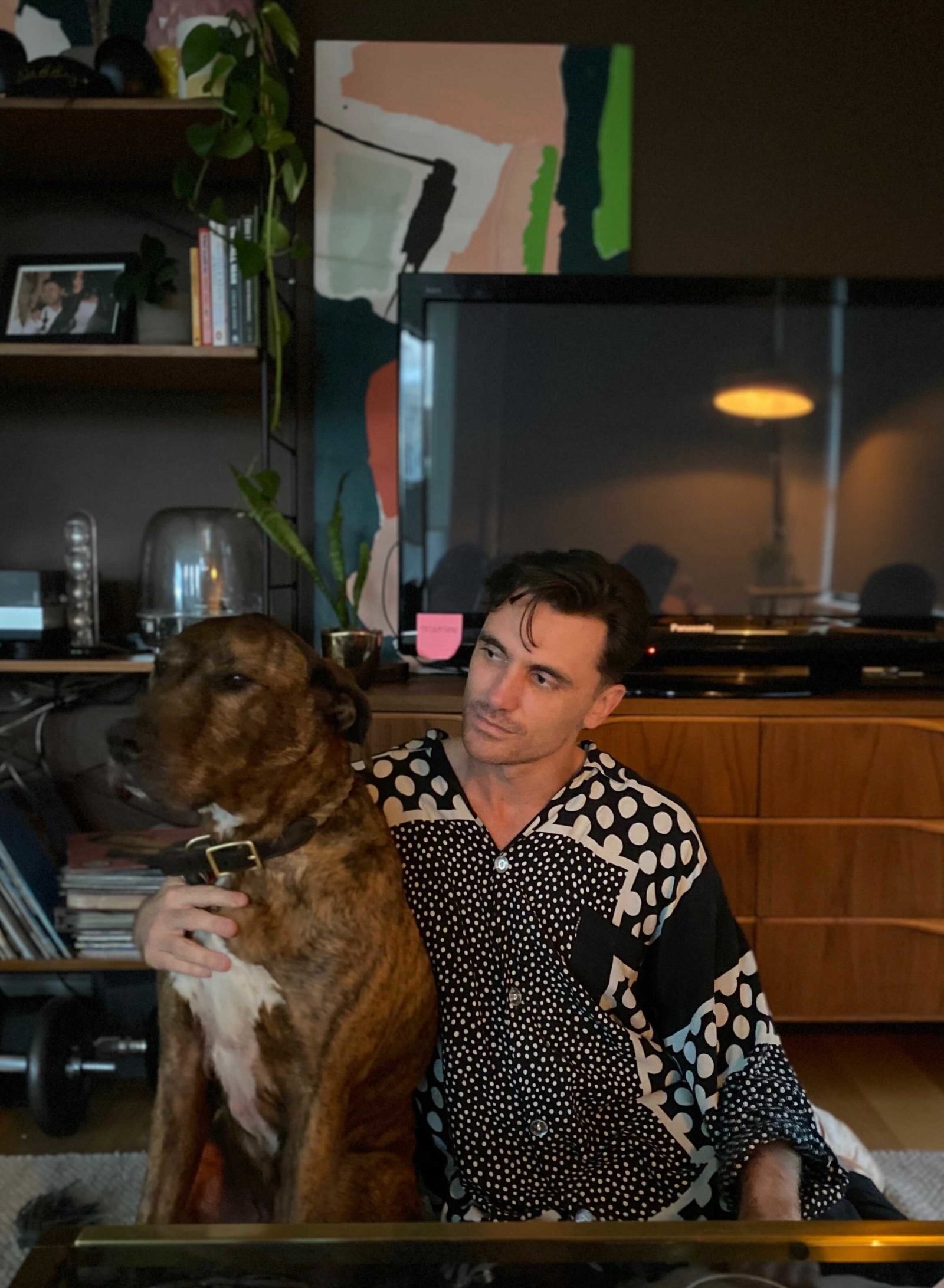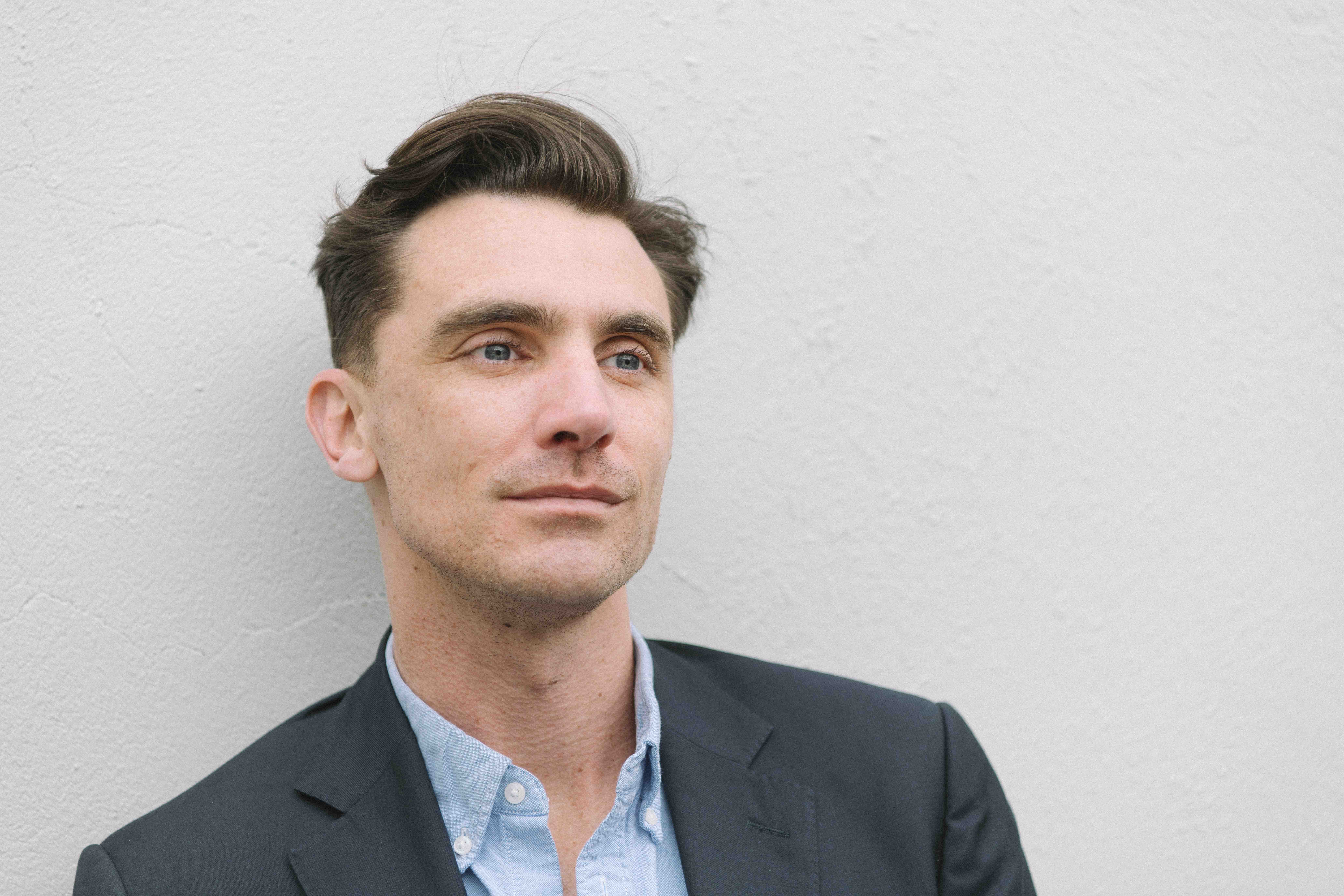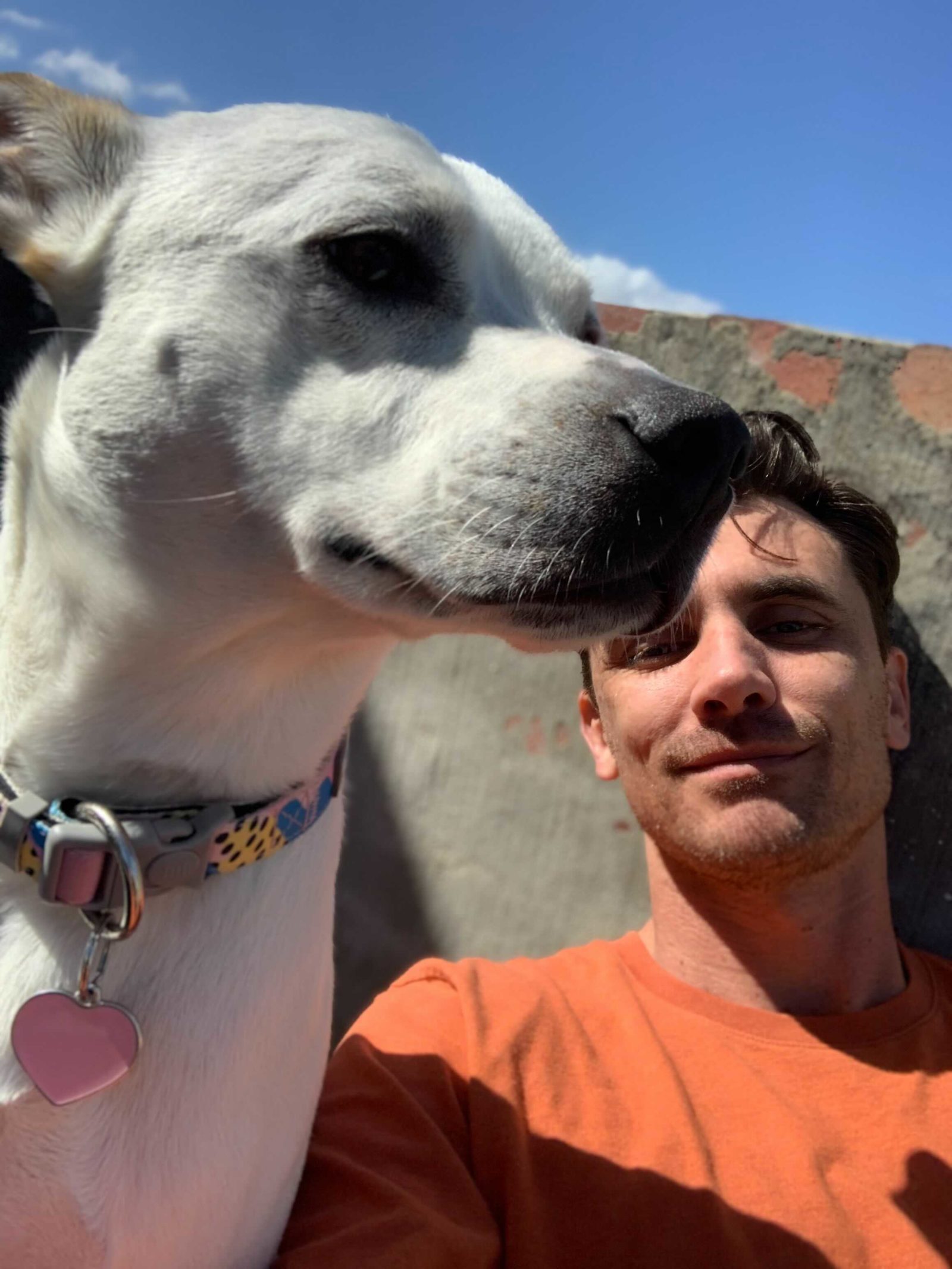People
Inside Change with Nic Holas

Why did this type of work interest you and how did you get started?
My activism began when I was diagnosed as a person living with HIV (PLHIV) over eight years ago. For a while, my entire focus was on dismantling HIV/AIDS stigma and the intersecting issues (queer politics, harm reduction, sex worker rights etc). With one other person, I started a small network of PLHIV in Sydney that quickly grew to the largest grassroots movement of its kind in Australia.
After many years of working with my community, I realised that supporting “every day” people who are desperately trying to change their corner of the world was an amazing thing, and if I could do that for lots of people, and lots of communities – why wouldn’t I?

How do you keep your coworkers keen and motivated?
I think passion and empathy are contagious. The best way to help your coworkers stay motivated is to model your passion and love for the work you do. But that passion and drive needs to be tempered with some reality – doing the job of a campaigner means lots of highs but just as many, maybe even more, lows. So lots of pragmatic self-care and co-worker care. It’s a marathon, not a sprint.
How would you describe the working atmosphere and the people with whom you work?
I love our small but mighty team here in Australia. We work across two cities, so we were already “Zoom” ready when the pandemic arrived. We get to support some of the most incredible organisers I’ve ever met – dedicated, incredible people who haven’t done anything like start a petition before. Helping them turn a new petition into a national conversation is something we all feel very privileged to do.

What’s one piece of advice you would give to professionals who may be trying to manage their identities in the workplace?
This is a tricky one. Firstly, you have the right to be as much of yourself as you want to be in the workplace. But I know how hard it can be to put yourself out there, to speak up and speak out. It’s exhausting, dehumanising, and anxiety-inducing. In my experience, the majority of people end up being open-minded, and open-hearted. Be prepared for curiosity, some awkwardly polite conversations, and the occasional slip-up. Make sure you maintain your support systems at work, and away from work too. What I love about Change.org are the number of caucuses/communities of identities, and the many more colleagues who are ready to learn and listen.
What’s a cause or social issue that you’re passionate about?
How long you got? 🙂 Obviously I will be an HIV activist for the rest of my (long) life, and the same goes for whatever I can do to support LGBTIQA people. But there are so many other issues that keep me motivated. Here in Australia, I’m proudest to support Change.org campaigns started by Aboriginal and Torres Strait Islander people who are fighting on so many different fronts: Black deaths in custody, land rights, healthcare and social equity, and their right to self-determination, safety, and prosperity.

If you could time travel, where would you go?
Oooh. I subscribe to the time/space theory that everything that has happened, is happening, and will happen is occurring in the universe – so we can’t “go back” and change the past. That means if we want something to change, we have to do what we can today. I explain all this to justify me choosing NOT going back to change history, but instead going way back to see what an actual T-Rex looks like (and then get the hell out of there).